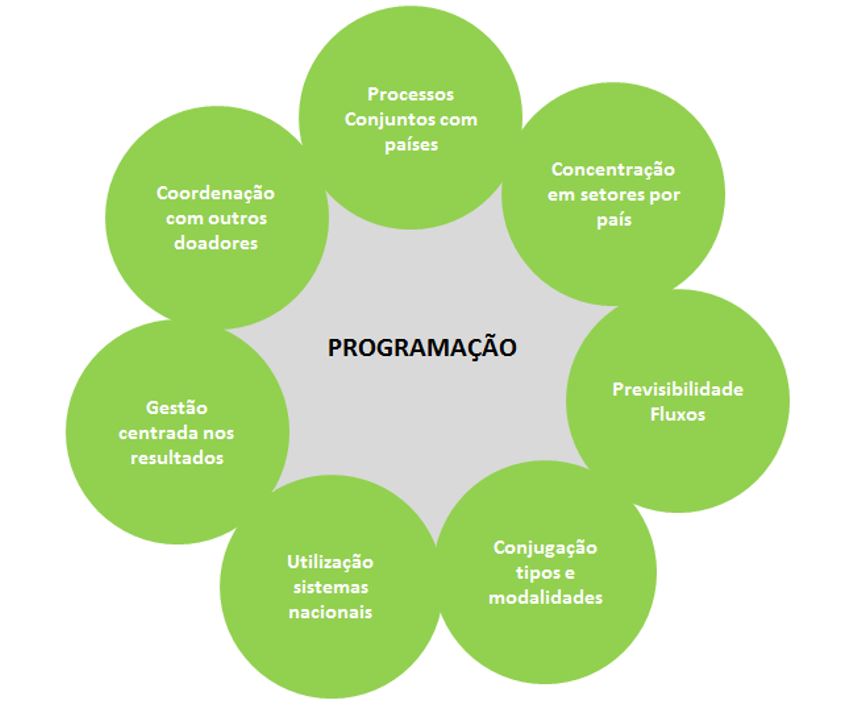The defining programming principles are as follows:
The new Strategic Co-operation Programmes (SCPs) are the result of a series of improvement measures including, among other things, a clear implementation timetable, full concentration of the areas of activity and respective investment in sustainable projects that include exit strategies, indicative financial envelopes, data frameworks and measurable objectives and results, along with a direct link to the implementation of commitments related to the Sustainable Development Goals (SDG). Programmes and projects should take into account any national priorities defined in partner countries’ development plans and strategic documents, as well as the interventions of other partners/donors.
The creation of training projects in Portugal and partner countries, as well as the introduction of agents in counterpart ministries for technical assistance missions will be favourably considered, considering the transversal objectives of investment in human and institutional capacity-building, along with the fostering of closer relations between public administrations in conjunction with the identification of opportunities for diplomacy in political, economic and cultural development.
During the programming process, evaluations of previous bilateral programmes play a very central role.
In addition to bilateral co-operation, for which SCPs are the programming document par excellence, partnership opportunities are considered a proactive way of pushing ahead with the process, particularly with the European Union, in the form of delegated and other forms of co-operation and the financing of projects using blending through the Society for the Financing of Development (SOFID).
Issues relating to gender and the promotion of partnerships, including the private sector, should be transversal to all programmes/projects.






